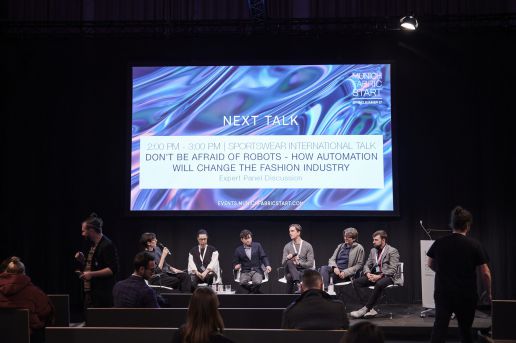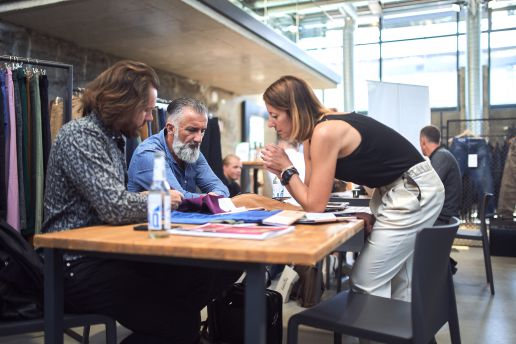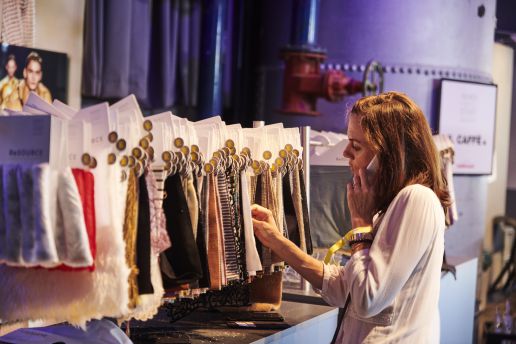Manufacturing
How Automation Will Change The Fashion Industry
SPORTSWEAR INTERNATIONAL TALK
DON’T BE AFRAID OF ROBOTS – HOW AUTOMATION WILL CHANGE THE FASHION INDUSTRY
In the February edition of Keyhouse at MUNICH FABRIC START, Sabine Kühnl, Editor-in-Chief at Sportswear International, hosted a panel about “Don’t be afraid of robots! How automation will change the fashion industry”. Five leading experts offered their unique insights into automation, digitalization and localization – which are currently some of the key trends driving the global fashion market.
With Ebru Ozaydin (Artistic Milliners), Jon Zornow (founder of Sewbo), Dr David Schmelzeisen (Research Associate of ITA, RWTH Aachen), Dr. Thomas Fischer (Head of Research at ITF Denkendorf) and Benjamin Baumann (Project Manager at Kuka).
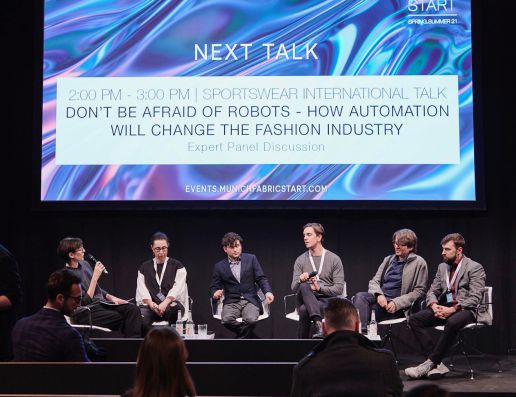
Don’t be afraid of robots! How automation will change the fashion industry
As we move closer towards a fashion system which resembles Industry 4.0, the five experts offered their insights into our current status and the role of automation, digitalization and localization.
Are we operating in times of Industry 4.0?
In terms of the classic, mass production of our fashion systems, our panellists agreed we are not fully digitized yet. Where Industry 4.0 is concerned, it has a lot to do with digitization and digital product development and simply the necessary steps have not been integrated throughout all areas of the production chain. Fischer estimates the progress among the various fragments of the fashion industry only reaches a maximum of 50%, with Baumann also suggesting that if we break down the many subtopics, we are making greater progress in some areas than others.
What then is the greatest challenge facing our industry?
Industry 4.0 relies on the exchange and sharing of data, which is currently still a problem for our fashion industry which is greatly fragmented. Where progress is often stunted due to manufacturers working conservatively instead of as part of a community which makes sharing and accessing data difficult. Collecting and processing data at all stages plays a vital role for Ozaydin, in order to bring more information about the production into the hands of the end consumer. With greater investment in automation technology, linking systems together in this way Zornow elaborates will make data sharing infinitely more efficient and available.
Is there a role textiles can play as part of Industry 4.0?
Textiles can be distinguished as part of the network where clothes can play an essential role in communication with its environment and the wearer. Through various integrated CPS’s (Cyber Physical Systems) such as sensors and antennas, textiles can become extremely useful materials for Industry 4.0 as well as a lot of other sectors. We explored this topic in greater detail with The Nurture Room project by fashion technology expert Pauline van Dongen also at the Keyhouse.
Will there always be a place for humans in fashion and textile manufacturing?
Through greater collaborative efforts and research into digitization, it will be possible to drive down the initial costs of automation which would lead to increased investments into automating processes. However, these will be non-value adding tasks and currently cannot replace the labour-intensive processes carried out by human beings. Schmelzeisen typically advises that 40% of production should be digitised but views the future of robots in the fashion industry as a collaborative relationship, where robots are brought in to assist workers and provide relief in difficult or strenuous tasks. Repetitive or mundane processes can be out sourced while increasing focus on value adding tasks only achieved by humans. There will be more jobs which evolve are suited to the human nature, their creativity and craftsmanship also in the development and management of these processes.
What is the role of localization in this new fashion system?
With global trends indicating that labour costs are set to increase in the conventionally ‘cheaper’ countries, this could make the higher investment costs of automation technology more feasible. At the same time, from a sustainability point of view, there will be an increase in companies operating regionally where materials can be processed and recycled locally. With solutions such as nearshoring, micro factories and smaller production centres offering attractive alternatives in times of political and environmental uncertainty. Also offering a solution to the high demand for personalisation and bespoke design services at the point of manufacturing, leading to the invention of new, customised technology and automated processes scaled to these new production processes. “Everything that can be digitized will be and everything that can be digitized can be personalised.” – Dr Thomas Fischer
Want to know more? Watch the full discussion now available on our YouTube channel.
BLUEZONE – Reject egoism. Create Ecoism

Transparency, environmentally friendly production and innovative textiles: The denim industry faces new challenges – standing together as an optimistic and strong, international blue community at BLUEZONE.
With over 100 major international brands, BLUEZONE has positioned itself as the initiator of an outstandingly strong and innovative denim community. Answering to new conscious consumerism behaviour and a growing interest for ready-made solutions, offering future oriented products, state-of-the-art manufacturing processes and complex technology solutions.
Reject egoism. Create ECOISM. Rewrite your future
BLUEZONE stands for a call for togetherness and collaboration for the good of our planet. With our ECOISM movement, we as a blue community are highlighting the upheavals in the industry and solutions related to climate change. These and other critical themes unique to the denim market will be tackled in depth across numerous lectures and international panel discussions taking place at the long table in the centre of BLUEZONE, encouraging direct exchanges and exclusive dialogue.
“In a world that is struggling with overproduction, we believe that “less is more, when less is better”.
And there is no better way to express this way of thinking than to follow ECOISM and collaborate with like-minded people and brands in order to
get the message across: Today, fashion CAN already be produced and consumed responsibly.
Hence our motto: Act now! While everyone else is still talking.”
Simon Giuliani, Global Marketing Director Candiani Denim
“To us, ECOISM means that we should all be part of an extensive network, in which each of us should contribute equal consciousness.
Good practices are not sufficient enough to serve as the decisive solutions to our urgent problems.
A harmonious connection between all players and stakeholders is the current global mission.”
Andrea Venier, Managing Director Officina+39-Italy
BLUEZONE HIGHLIGHTS
HARDWEAR: THE SUSTAINABLE DENIM WARDROBE COLLAB PROJECT. This unique collaborative project between TENCEL™ X JEANOLOGIA® X ENDRIME® made at Blackhorse Lane Ateliers focused on creating a truly sustainable workwear wardrobe. The brief was to design an authentic denim collection, inspired by vintage garments from the ENDRIME® archive, using only the latest commercial TENCEL™ Lyocell fabrics, complimented by the application of the latest laundry technologies from Jeanologia®. The Hardwear project, as well as how collaboration will bring denim into the next decade will be discussed by the initiators Carme Santacruz, Mohsin Sajid, Sadia Rafique and Tricia Carey on Tuesday, 4th of February 2020 from 5.15pm – 6pm.
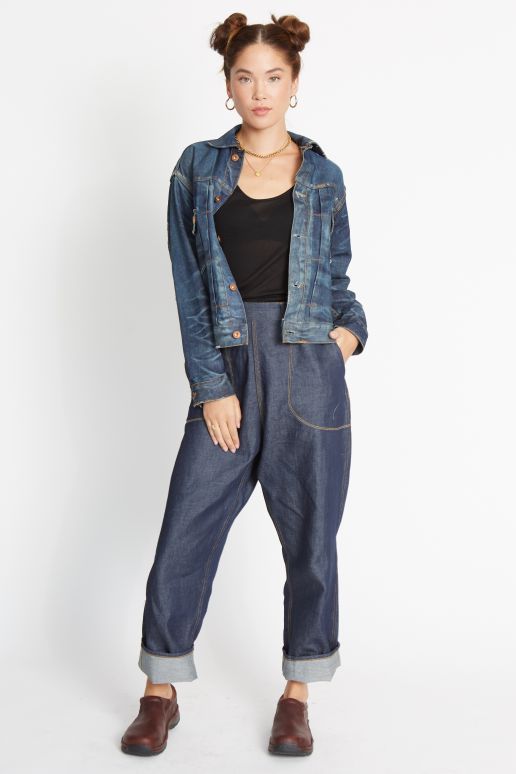
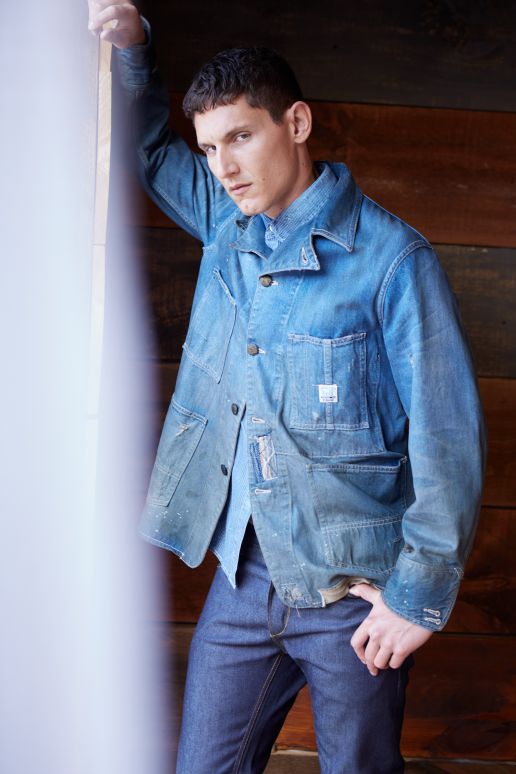
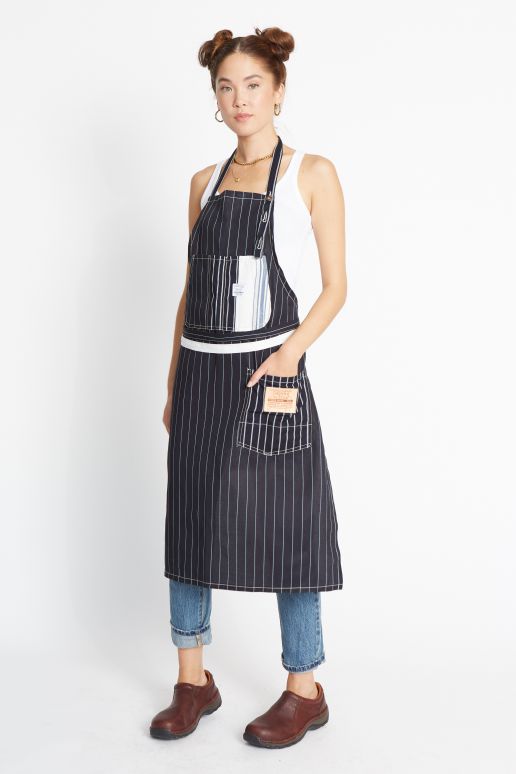
CIRCULART. The project CirculART is the result of cooperative work by 10 companies who are representatives of the sustainable textile production chain, from yarns to the final product and accessories. Four invited artists have metaphorically inserted themselves between the warp and weft of the life cycle of clothing to be an intersection point through which the public can observe the textile production processes, creating different attitudes towards the products we buy. The aim of the project is to bring artistic research to question the different processes constituting the textile production chain.
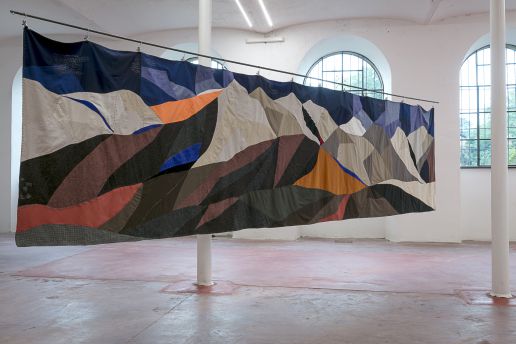
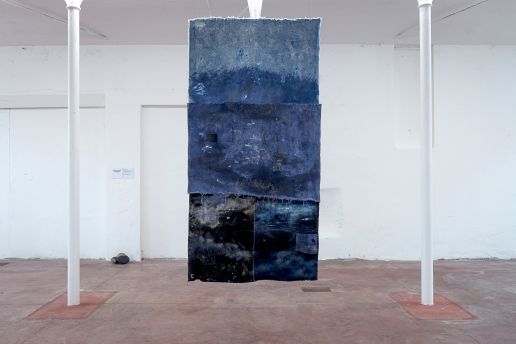
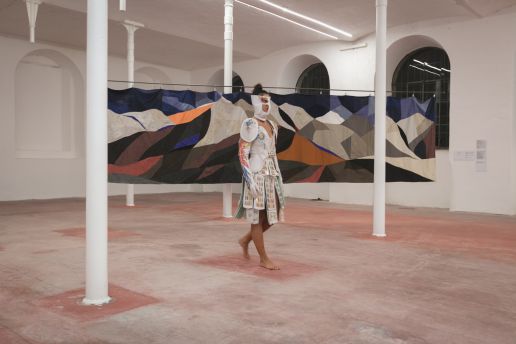
KG DENIM LIMITED, LYCRA, STYLERS INTERNATIONAL and BERTO are pursuing the goal of conserving natural resources and chemicals – through cotton free or post-consumer cotton collections (KG Denim Limited), a collection of EcoMade products which recycles waste for a more circular business (Lycra), a Wardrobe Essentials collection focusing on timeless pieces (Stylers) or the development of new indigo tones which uses far less water and chemicals (Berto).
The DENIM HOUSE has invested in a biological water treatment station to reach their goal of recycling more than 80% of the water usage by June 2020. The collection is influenced by the 90s comeback with straight cuts, comfortable and rough styles.
CALIK DENIM presents ‘Gravity’, a collection focused on taking a sustainable approach throughout the whole supply chain. By applying the ‘Denethic’ product concept and its new laundry technologies, it is possible to create targeted authentic looks, where clean look garments or heavy wash effects can be achieved using remarkable less water, chemicals and energy.
At LDM, eco practices and developing new techniques for denim production are in their DNA. To achieve the desired denim look, LDM uses either a wet process which uses simple enzymes to reduce water wastage or a new drying process which uses vegetable dye instead of chemical dyes.
After 11 years of research, TEJIDOS ROYO developed the Dry Indigo® technology, successfully changing the conventional Indigo dyeing process by eliminating water consumption. Dry Indigo® uses foam application, using no water in the process thus totally eliminating the discharge of wastewater, reducing energy usage by 65% and 89% of chemical products. Thanks to this innovation, the “One Million Liters” project has been launched: the company donates every year one million litres of water saved to social causes that need this resource to live like UNICEF. Rocio Perez de los Cobos, Marketing Director at Tejidos Royo, will give further insights into Dry Indigo® and the One Million Liters project in his keynote on Wednesday, 5th of February 2020, 3pm – 4pm.
SAAT X CANDIANI DENIM FOR BLUEZONE ECOISM
The hostess outfits for the new edition of BLUEZONE featuring ECOISM have been created by SAAT in cooperation with Candiani Denim. Consulting & Design Studio, SAAT, creates concepts and collections based on ‘NO WASTE PRODUCTS’ with a focus on reducing the amount of waste during production, emphasizing the value of each individual product. To underpin the ECOISM theme, SAAT created a ‘PURE’ workwear capsule collection in virgin ecru cotton together with Candiani Denim, known as the greenest textile company in the blue world.
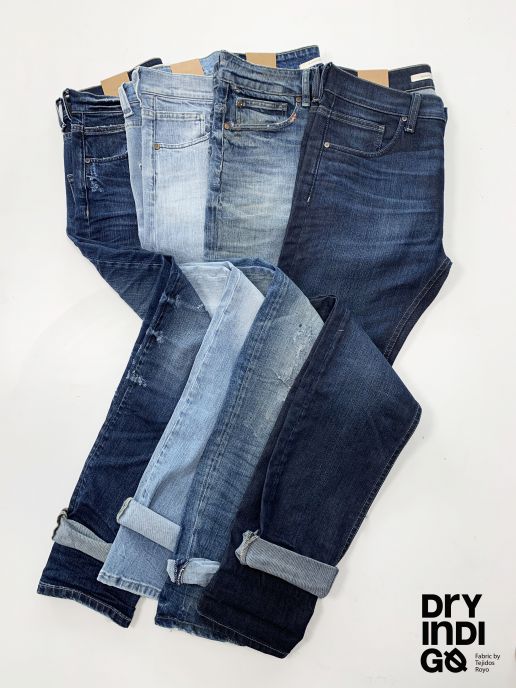
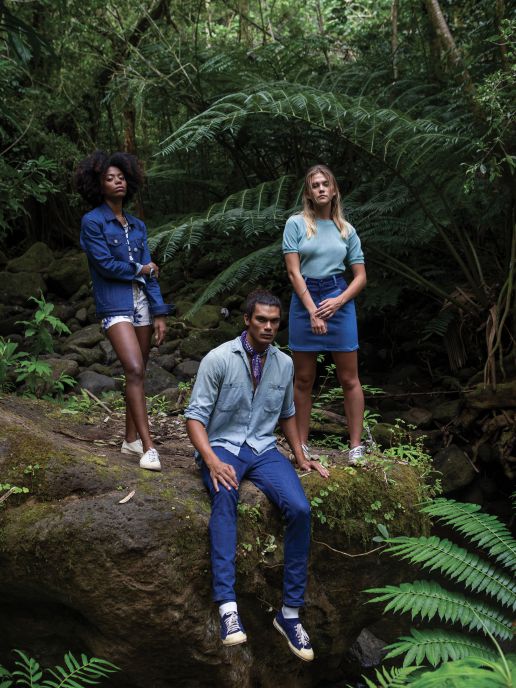
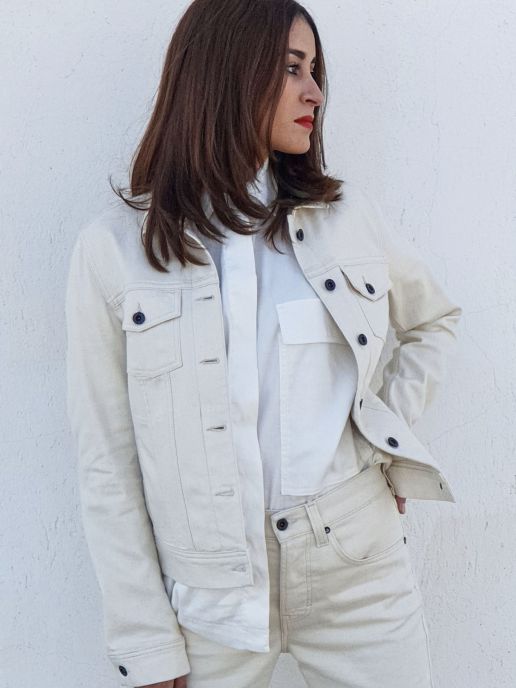
TALKS AND PANEL DISCUSSIONS
Panel discussion “The ultimate sustainable standard for the denim industry” – Tuesday, 4th Feb, 11.30am – 1pm
Eco Intelligent Growths, partner of C2C institute, and Rajby Industries will lead the discussion between five key denim insiders: Claudia Szerakowski, Aglaia Gomez d’Alessandro, Kursad, Zaki Saleemi, Tony Tonnaer and Panos Sofianos.
Rivet 50‘s 2020 Vision – Tue, 4th Feb, 3pm – 4pm
What will the new decade bring for the denim industry and community? Rivet 50 will lead a discussion between some of the world’s most influential denim characters – Alberto Candiani, Tricia Carey, Jordan Nodarse, Ebru Qzaydin, Mohsin Sajid, Andrea Venier, Tilmann Wröbel, Panos Sofianos, Paolo Gnutti & Angela Velasquez – to discuss their predictions for business, technology and fashion.
BLUEZONE trend direction by Tilmann Wröbel, Tue, 4th Feb, 4pm – 4.30pm & Wed, 5th Feb, 12pm – 1pm
Tilmann Wröbel, the founder of Monsieur-T, explains the 8 essential trend directions currently taking shape in the denim industry which will influence the upcoming seasons.
“Recreating fades the sustainable way” by Soorty – Tue, 4th Feb, 4.30pm – 5.15pm
Thomas Stege-Bojer, Wouter Munnichs and Eda Dikmen give insights into “Recreating fades the sustainable way at Soorty’s Nasda Lab”.
Panel Discussion about “Hemp history and challenges going forward for the denim industry” – Wed, 5th Feb, 11am – 12am
Mohsin Sajid, Founder of Denim History, hosts the panel discussion with the speakers Jean Pierre Inchauspe, Eric Sun and Rashid Iqbal.
Panel discussion about “RMG & the future of fashion” – Wed, 5th Feb, 1pm – 2pm
The discussion between the three industry insiders Rocio Perez de los Cobos, Chesi and Denise Sakuma revolves around the topic “How to find the right balance for an ecoist future”.
Keynote about “Breaking Bad: How the denim industry can end its wasteful habits—from fibre to marketing” – Wed, 5th Feb, 2pm – 3pm
Anne Oudard leads the keynote answering the questions how the fashion industry ended up generating a huge amount of waste and what solutions the denim industry possesses to reduce this waste. She explains strategies to increase jeans lifespan and the optimisation of the production chain.

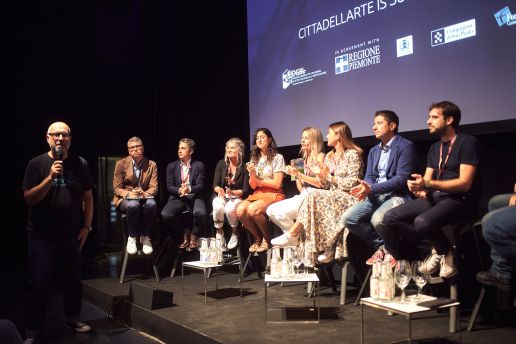

New Entries at MUNICH FABRIC START
Discover a selection of the latest suppliers and manufacturers to join the presentation of Fabrics, Additionals, Design Studios, Denim and Sourcing to showcase their collections for Spring.Summer 2021 in Munich. Register to attend now.

Forza Tekstil takes the expectations of their business partners to the next level by offering flexibility in production and perfect quality. The Turkish company is specialized in printed and plain fabrics, like viscose, viscose mixtures, cotton, linen, polyester and Tencel fabrics while adhering to the principles of productivity, sustainability and environmentally friendly production.
Section 2 | Stand F 208
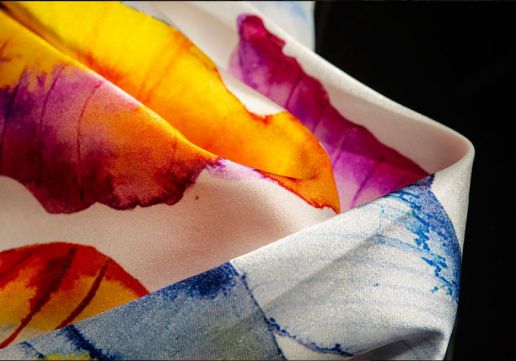
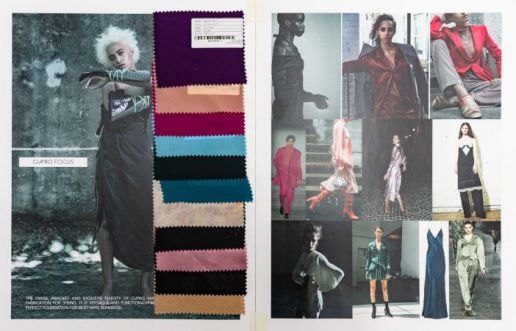
Shanghai Saite Silk was founded in 2004 as an incorporated company within the formation of the state-owned Shandong ZiBo No.2 silk weaving factory. We commit ourselves to designing, producing and selling women’s fabrics in the fields of silk, viscose and polyester.
Artrium 3 | Stand C 112
Telater creates with its long-lasting experiences and knowledge of raw materials and production techniques exclusive collections of fabrics and fashion with high quality. We are continuously evolving, visiting national and international fairs and catwalks in order to offer fabrics and designs aligned with the latest tendencies in the industry.
Hall 3 | Stand B 04
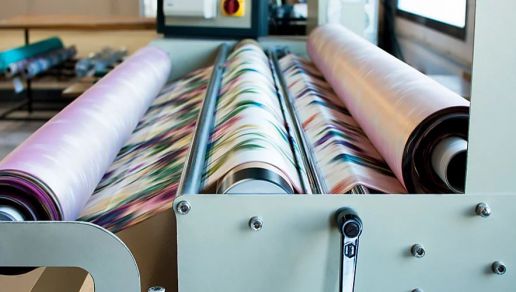
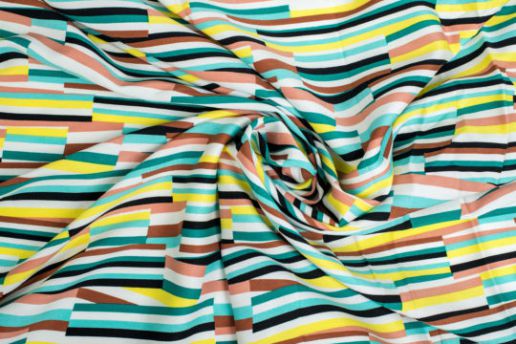
T-Style unites more than 1500 employees who work successfully every day on the development, production and improvement of high-quality knitwear made of cotton, viscose, polyester yarns and their blends. The company produces more than 20 tons of fabric per day – such as single jersey, pile fabrics, plush, interlock, ribbed textiles or fleece.
Section 2 | Stand E 224
Universal Textile produces underwear, outerwear, home textiles and upholstery fabrics since 1998. With a fabric production capacity of up to 60 tons per day, we offer outstanding services to brands from all over the world. We produce our fabrics in our own facilities in accordance with internationally recognized quality standards.
Section 2 | Stand E 221
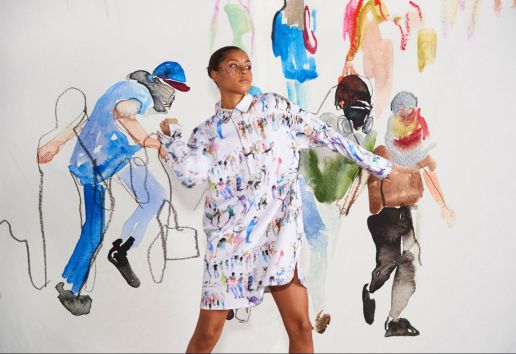

Having entered the zipper sector in 1988, ECE Zipper has been running at its modern plant with 20.000 m2 closed site and its qualified staff in Avcilar Firuzköy, Turkey. ECE Zipper is an integrated establishment with its narrow weaving unit, modern dye-house, casting-house where special pullers are designed and produced with advanced technology machinery.
Hall 1 | Stand E19
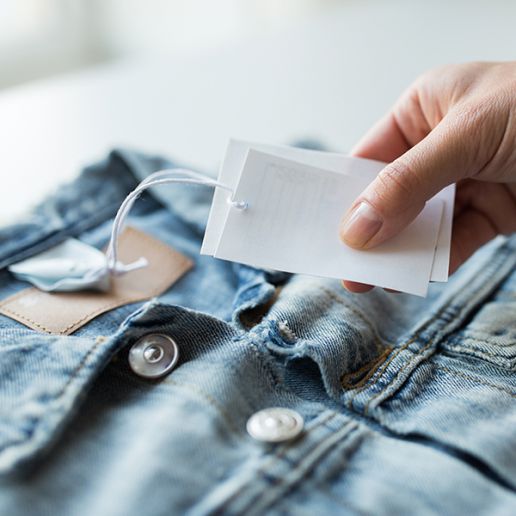
With over 12 years of experience in the trims and packaging industry supplying high quality products to a vast variety of domestic and international brands, we as Elements Printing and Packaging strive to give the best service to our customers. By remaining responsive to our customers’ needs and expectations, we are able to continuously adapt our business.
Hall 1 | Stand B15
Harmanci Label, as one of the leading label manufacturers in Turkey, serves to the biggest worldwide brands since 1931. Harmanci follows the needs of the sector as well as the fashion trends by producing woven, printed, screen printed and heat transfer labels and narrow woven ribbon in modern and environmental-responsible premises.
Hall 1 | Stand A 20
ITL is a global provider of Apparel Label Solutions supporting brands, retailers and manufacturers globally with a comprehensive range of products and services aimed at optimising brand identity and supply chain performance. Launching at Munich Fabric Start is their C.A.R.E Collection: a range of Conscious, Affordable, Responsible and Eco- Friendly labels that never compromise on quality or aesthetics.
Hall 2 | Stand A 19
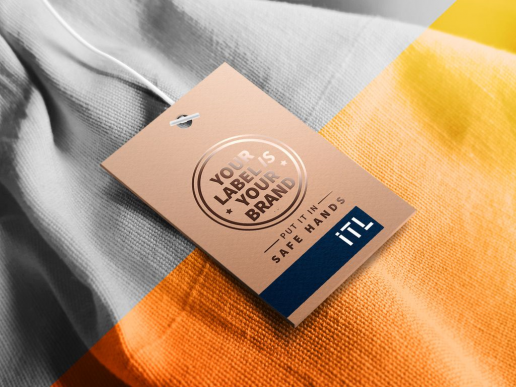
Linx Europe
Linx EU Newly developed collection made of recycled materials: outer fabrics, linings, trimmings. The focus is on sustainability and function alike. Mechanical functionality paired with innovative sustainable finishing variants. The fusion of fashion and function without limitation of hand feel and colour!
Hall 2 | Stand A 12
Sun Etiket is one of Turkey’s leading label and package design and -production companies providing services to national and international brands. Sun Etiket specialises in creating highly advanced, experiential labels and packaging since 1986. With over 150 experts in our team, we constantly focus on every brand’s uniqueness and strive to make the brand experience even more inspiring.
Hall 1 | Stand C 12

For over a decade, Denim Masters have worked in partnership with a variety of fashion brands as their denim apparel manufacturer of choice. Utilizing long-lasting tailoring expertise and traditional construction methods, our tailors and seamstresses create handmade garments of top quality at highly competitive prices.
Hall 7 | Stand B 06
Borkro Textile Wash LTD with its long-time experience in the textile industry, organizes and manages textile production in Bulgaria offering a complete range of women’s and men’s denim products, starting from pattern development to prototypes and from collections to bulk production. Furthermore, they are able to offer an extended variety of wash procedures and techniques which establishes them as one of the leading manufacturing companies specialized in denim garments. Their major goal is to offer fast and effective service, competitive prices, high standards, constant quality and high flexibility.
Hall 7 | Stand c 07
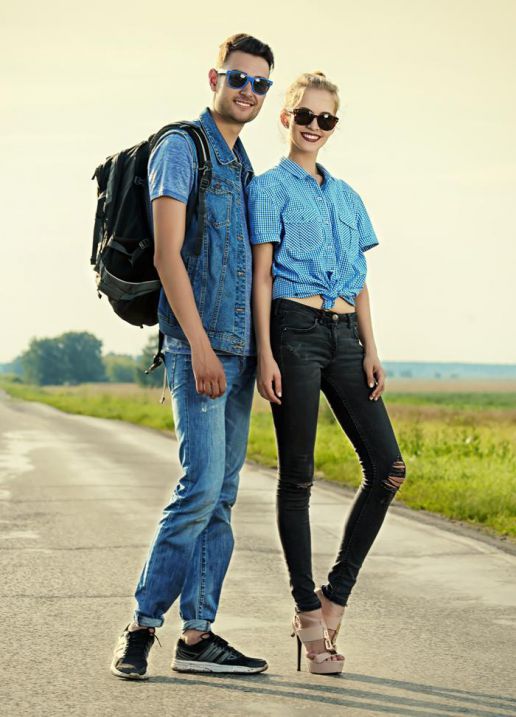
With a patented machine design and dyeing process, Island Denim can dye all the cellulosic fibres and blends in the desired yarn count (1 Ne – 200 Ne). By doing so, Island Denim gives stamina to many manufacturers of woven and knitted fabrics a great deal of freedom in the use of indigo in the design of their products.
Hall 7 | Stand c 20
Jeanci Konfeksiyon Tekstil produces mostly washed textiles on behalf of its own brand. The products are mostly denim, canvas, gabardine, satin and poplin. Besides, the company executes the finishing of woven fabric and textile by washing, dyeing in piece and other added values for final products. Jeanci has been manufacturing on behalf of prestigious brands in Europe for the last 23 years.
Hall 7 | Stand A 18
Stylers Group creates advantages for denim brands through strengths in sourcing, speed, stitching expertise and service, when it’s time for your jeans to take a step ahead – in fashion, sustainability and profitability.
Hall 7 | Stand B 03

Design Union is a textile print design studio producing unique contemporary fabric designs for fashion and interiors. The constantly evolving portfolio of silk screen and digital prints includes embroideries using vintage fabrics. The digital textile designs are sold to you as Photoshop PSD files in layers.
Section 1 Design Studios | Stand E 102
Primus Pattern is a textile design studio founded by Claudia Böhm. The qualified illustrator and owner of a studio in the heart of Munich is a creative researcher and conceptual partner in finding an excellent fitting and timeless design. Claudia Böhm combines drawn botany and geometry with handmade stylistics.
Section 1 Design Studios | Stand E 105


Care Applications works to reduce the environmental impact generated by the garment industry through new methods and devices. These developments are designed to optimize and modernize existing garment washing and dyeing machinery thus bringing improvements, savings and versatility. Within the Dye & Safe project, thanks to our advanced micro-nebulization metering device called ECOFinish together with our technical experience, we have been able to produce a traditional garment dye with exceptional penetration and evenness while using a minimum amount of water and greatly reducing the environmental impact. Care Applications offers this garment dyed with an even and penetrated standard dyeing process through the ECOFinish nebulization system saving 60% of water, 80% of energy and 99% of salt.
Hall 5 | Booth 23
A circular fashion industry is a regenerative system in which garments are able to circulate with maximum value retained for as long as possible before being able to re-enter the system through reuse or recycling. Therefore, we provide state of the art research, expertise and practical assets through workshops and software tools that help your brand transition towards circular practices.
Hall 5 | Booth 38
CLO Virtual Fashion creates cutting-edge 3D garment visualization technologies that cultivate a more creative and sustainable landscape for the fashion industry. CLO’s robust simulation engine allows you to create styles with countless layers and intricate details, which consistently solve glaring obstacles in your product life cycle.
Hall 5 | Booth 32
Recover works on the development of a closed-loop industry by offering brand, retail and factory partners a closed-loop solution for end-of-life waste management. The open-end spinner working for 7 decades with recycled cotton fibres is using textile waste as raw material to create new premium upcycled yarns. The Spanish company combines two resource and energy efficient processes – fibre upcycling and colour blend – to create new dye free upcycled fibres with accurate colours without using water or chemicals.
Hall 5 | Booth 15
A circular fashion industry is a regenerative system in which garments are able to circulate with maximum value retained for as long as possible before being able to re-enter the system through reuse or recycling. Therefore, we provide state of the art research, expertise and practical assets through workshops and software tools that help your brand transition towards circular practices.
Hall 5 | Booth 33

Cascade Enterprises is a cost effective, fully integrated, design-to-manufacture solutions service provider. The company offers ready-to-wear apparel to renowned retail and e-commerce fashion brands globally. We sample, source, plan, monitor and facilitate timely deliveries of high-quality goods that are ethically sourced.
Atrium 3 Sourcing | Stand D 110
Dragon Group Limited is an export-oriented company founded in 2001 and specialized in the development, manufacturing and distribution of fashion accessories. The company owns two factories for gloves production and at the same time has created partnerships with over 30 manufacturers of fashion accessories specialized in hats and scarves production.
Atrium 3 Sourcing | Stand D 108
Raith Textiles is a factory with GOTS and Oeko Tex certificate, producing baby- and children wear as well as women night wear for private labels.
Atrium 3 Sourcing | Stand D 104
Easy Invest Solutions is a manufacturer and exporter of high-quality men’s and women’s blouses with 20 years of experience. We supply both CMT as well as full product services, having among our suppliers the best of Italian, European and worldwide fabric producers. The company uses modern machinery and an automatic cutting system from Lectra. Prototype and sampling services are available as well as pattern creation and alteration and washing facilities for garment treatments.
Atrium 3 Sourcing | Stand D 110
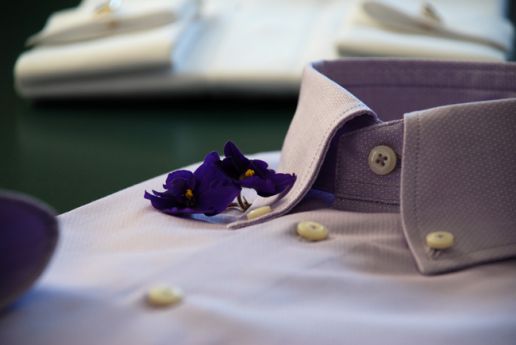
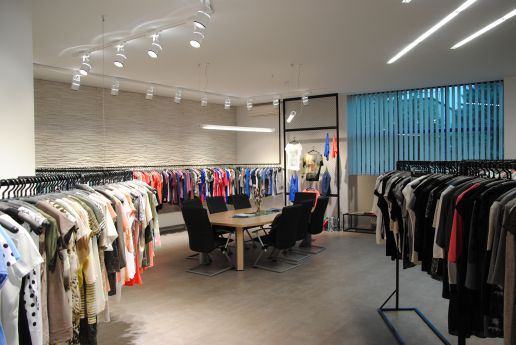
For 30 years now, Union 3 Fashion is a leader in women’s fashion, designing and manufacturing ready-to-wear garments. We are one of the largest export production units in the Balkans and Eastern Europe, exporting our products to many well-known clothing companies across Europe. Excellent customer service, competitive prices, best quality standards, quick production lead time, reliability and punctuality are among our main objectives.
Atrium 3 Sourcing | Stand D 105
Swiss Jeans Freak X Candiani Collaboration
Ruedi Karrer, also known as the Swiss Jeans Freak is the founder of the world’s first independent Jeans Museum and a prominent member of the denim community.
Ruedi has partnered with Candiani Denim to realize a lifelong dream of creating a limited-edition collection of 60 pieces. A special collaboration and passion project to commemorate his 60th Birthday, the jeans were unveiled at BLUEZONE during the current MUNICH FABRIC START in September along with a promotional short film celebrating Ruedi’s unwavering passion and devotion to denim.
The limited-edition collection was designed by Ruedi, engineered by Candiani and manufactured 100% in Italy by IMJIT. The revenue from sales will contribute to the development of the Jeans Museum in Zurich.
Watch the short video to learn more about this project:
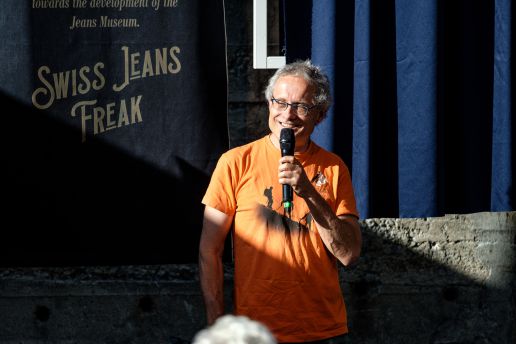
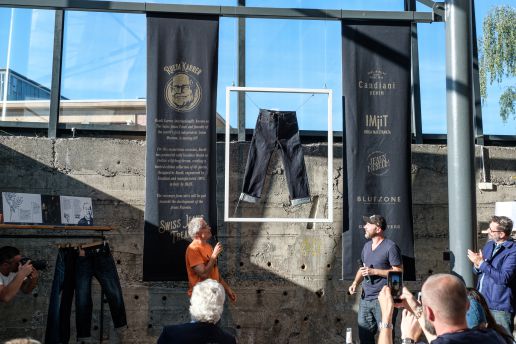
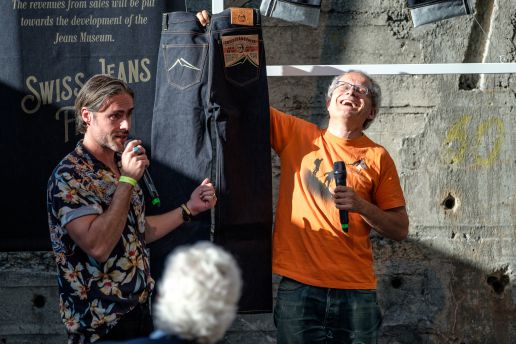
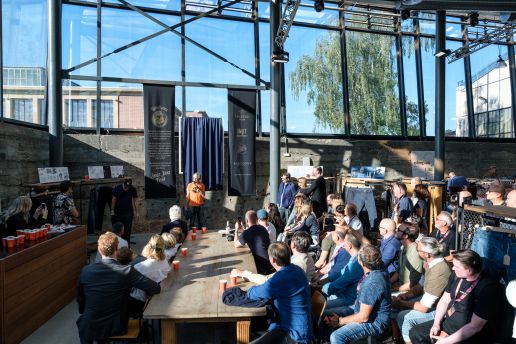
A Conversation On Sustainability, Transparency & Mainstream
From slow fashion to mainstream business, materials to education, fashion and sustainability raise so many questions. A vast and complex issue, Muchaenta Kapfunde of FashNerd turned to 3 women making a difference in the sustainable fashion space.
Charney Magri a fashion photographer turned documentary maker. The co-founder of Fashion 4 Change has worked for the likes of British Vogue and Ralph Lauren, and now she is a partner for do epic sh*t. Olivia Pinnock is a London-based fashion journalist, lecturer and founder of The Fashion Debates. She is dedicated to uncovering insightful stories in a fascinating industry and promoting positive change for a more sustainable future for it. Abigail Morris is the Founder and CEO of Compare Ethics. It is a start-up that connects you to ethical brands through the latest online and offline experiences. Since launching in 2018, Compare Ethics is regularly featured in top social feeds and connects thousands of ethical shoppers with brands each week.
On the topic of sustainable fashion, I asked Charney, Olivia and Abigail to share their perspective on the most commonly asked questions.
CHARNEY MAGRI
Do you think that eco-fashion is still a niche market? If so, why?
The day that ‘Eco Fashion’ is just called ‘Fashion’ and is accepted as the norm, will be the day that I believe ‘Eco Fashion’ is no longer niche but rather just common sense.
In your opinion, what are the top 3 things that brands should focus on with regards to promoting their sustainable practice?
I don’t believe there are three focuses on promoting a sustainable brand. However, there are two main verticals in sustainable fashion: environmental and human rights. Both need to be addressed and both need to be made transparent for the success of any [sustainable] brand. As a visual communicator, I want to see all brands talking about this to their consumers as well as the right certifications in place to verify their practices.
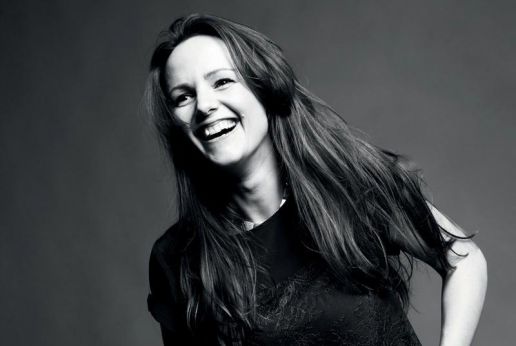
What advice would you give an individual looking to start-up a sustainable fashion retailer, particularly with the threat of a current ‘retail recession’?
Research is the first most crucial piece of advice. But the biggest obstacle you will come across is finances. Sourcing sustainable fibres and fabrics are more expensive than unsustainable options and mills will not accept small runs. You must build relationships with suppliers to be able to get the smaller quantities needed, and this takes time. I really believe there is a future in collaborating with like-minded designers to approach companies together so you can fulfil your orders when starting out.
ABIGAIL MORRIS
In your opinion, what are the top 3 things that brands should focus on with regards to promoting their sustainable practice.
1) Create a strong storytelling environment. Whether via online or offline experiences, sustainability is best shared as a story that people can easily back and tell their friends.
2) Be authentic. Nobody is perfect when it comes to sustainability. Bring people on your journey and celebrate your achievements with your community in real time.
3) Strive for increased transparency. Open up your supply chain and show people you are working to the highest ethical standards. Whether you are showing who made your clothes or using blockchain to track your supply chain, people increasingly want to know the provenance of your products.

Do you think ethical clothing will ever out-compete the mainstream less ethical products and dominate the fashion industry in the future? Why?
I don’t think new ethical clothing alone will out-compete the mainstream. However, what is more, interesting is how new business models will disrupt the fast fashion industry. ThredUp found that the second-hand market is growing 21 times faster than retail apparel over the last three years and is on track to be larger than fast fashion by 2028. At the same time, fashion rentals and sustainable fashion are moving into the mainstream. Given that fast fashion relies on volume, it will be interesting to see how and when mainstream brands will pivot towards a conscious fashion future.
Why do you think people are still buying from mainstream shops that sell unethical clothing?
People still buy unethical clothing because there is a variety with a strong product-market fit, and it is super easy to find. Sustainable fashion is making amazing strides on these areas. We increasingly see brands get product quality, price point and aesthetics right, but we need more choice and scale to compete. This has to be coupled with an easy way to find sustainable products. This is why we set up Compare Ethics – we know there are amazing sustainable products out there, it just has to be easy to find them.
OLIVIA PINNOCK
What do you see as the biggest challenge in getting customers to seek out more ethical and sustainable alternatives to high street fashion?
The biggest challenge is the convenience of mainstream fashion. It is far easier to seek out familiar brands that the consumers’ trusts, are fresh in their minds because of advertising and offers affordable fashion with next day delivery than it is to look for alternatives. Greenwashing is another issue that does damage to the whole sustainable fashion community as shoppers are not sure who they can trust.
What steps can we take to increase transparency and accountability for high street retailers?
I think governments have a tremendous amount of power in making the fashion brands that operate in their countries more transparent. We have seen it here in the UK with the Modern Slavery Act and the Environmental Audit Committee’s investigation into a fast fashion which bought CEOs from some of the biggest UK retailers into parliament to testify on what they’re doing about the issue. Companies are not going to give over information about their practices and their suppliers willingly for fear of giving valuable information to their competitors, but governments have the power to say that protecting garment workers and the environment is far more critical than that.
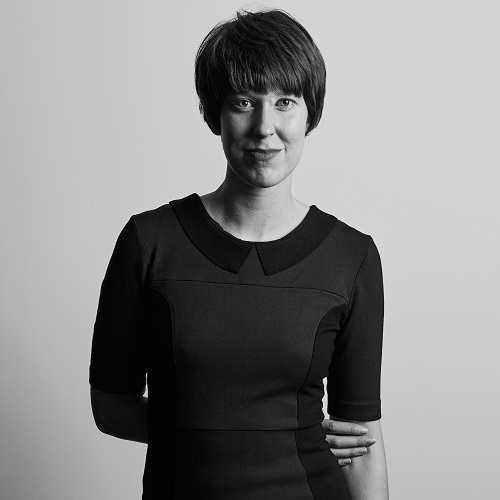
What advice would you have for people that want to be more conscious of their fashion choices?
Start with the wardrobe that you have. Consumers can make the most significant difference by changing how much they buy and how they manage their clothes at the end of their life. There are things you can do to support more ethical brands and put pressure on big brands, but where you can make an immediate, tangible impact is in your own home. Take steps to reduce how much clothing you’re buying, if it’s possible, and when you’re done with a piece of clothing, ask yourself whether it can be repaired or upcycled instead. If you still want to throw it away, can you give it to a friend to extend its life? It’s much better to give it to someone you know will wear it than take it to a charity shop where you don’t know where it will end up, especially if they can’t sell it if it’s not worth hanging on to someone, research how you can responsibly dispose of textiles in your local area through recycling schemes.
An Introduction to the Events Program at MUNICH FABRIC START

The event program on offer at Munich Fabric Start is a reflection on the issues, strategies and common themes the industry as a collective are facing right now. Through a series of seminars, panel discussions and keynote talks, we are equipping our visitors with the necessary tools and know-how to grow their brand and business successfully during these times.
Discover the events which are tailor-made for your business, check out our complete event program and begin to plan your trade fair visit. Here are our highlights from each of our event platforms at Keyhouse, ReSource and Denim Dock.

Create Future at Keyhouse
TUESDAY 3rd of September
SusTECHability Panel Discussion
11.30am – 1.00pm
SusTECHability – How trends and technology influence sustainability in fashion.
With Li Edelkoort of Trend Union, Michael Stnaley-Jones of United Nations Environment Programme, Tricia Carey of Lenzing Fibers, Natasha Franck of EON Group Holdings and Erik Bang of H&M Foundation. Moderated by Jana Kern and Alex Vogt of KERN Consulting.
EN
Swarovski Talk
2.00pm – 3.00pm
Trend Technik Design
With Dr Ralf Weinbeger and Christel Wickerath of Swarovski.
DE
Li Edelkoort Trend Presentation
4.00pm – 6.30pm
BROWN AGE – Fashion, Shapes, Textiles and Colours for AUTUMN/WINTER 20/21
GREEN WAVE – New Colours for SPRING/SUMMER 2021
RECREATION – Casual Wear Trends and Colours
MEET & GREET – Drinks with Li Edelkoort
EN
WEDNESDAY 4th of September
Fashnerd Panel
10.30am – 11.30am
Reshaping the Fashion Industry for good
With Muchaneta Kapfunde of FashNerd, Charney Magri of Fashion 4 Change and Do Epic Sh*t, Olivia Pinnock of The Fashion Debates and Abigail Morris of Compare Ethics.
EN
EON Group
11.30am – 12.30pm
Circular ID – The Digital Foundation for Circular Economy
With Natasha Franck at EON Group Holdings and Maruschka Loubser of Brand Marketing and Partnerships Microsoft
EN
Archroma
5.00pm – 6.00pm
Break new ground with aniline-free indigo for denim
With Albert Llort of Global Competence Center Denim
EN
THURSDAY 5th of September
FashNerd Keynote
11.00am – 12.00pm
From Seaweed to Fiber, Is Biology The Future of Fashion?
With Muchaneta Kapfunde of FashNerd
EN
Taking place in the lecture area in Keyhouse, Hall 5.

Let’s ReSource
TUESDAY 3rd of September
Lenzing
12.00pm – 1.00pm
Towards a circular economy – A fiber producer’s view
With Caroline Ledl of LENZING Group
DE
WEDNESDAY 4th of September
Oeko-Tex
1.00pm – 2.00pm
Sustainability leads to economic efficiency
With Dirk Schafer of Oeko-Tex
EN
THURSDAY 5th of September
s.Oliver Group
1.00pm – 2.00pm
WE CARE – The Sustainable Program by s.Oliver Group
With Astrid Schodel of s.Oliver Group
DE
Taking place in the lecture area in the MOC, ReSource k4 Area Foyer Hall 4.

Let Them Know at Denim Dock
TUESDAY 3rd of September
Panel Discussion
11.00am – 12.00pm
The Greendigo REvolution Panel Discussion
With Albert Llort of Archroma, Alberto Guzzetti of Tejidos Royo and Panos Sofianos, Denim Curator at Bluezone
EN
THE ALL RELATED TREND AND COLLABORATION PRESENTATION
12.00pm – 1.00pm
Meet the makers behind the future-proof premiere of collaboration and learn about the ALL RELATED trends
With Lucie Germset and Tilmann Wrobel of Monsieur T
EN
WEDNESDAY 4th of September
Sportswear International Talk
4.00pm – 5.00pm
WOMEN IN DENIM – How The Power of Woman Can Change The Denim World
With Sabine Kuhnl of Sportswear International, Lucie Germser of Monsieur T
EN
Monsieur-T
2.00pm – 3.00pm
How to be yourself as a brand
With Tilmann Wrobel of Monsieur-T
EN
Taking place in the elevated lecture area, Denim Dock, in the Bluezone Hall 7

Get up close and personal with BLUEZONE, one of the world’s largest denim shows featuring over 100 leading international denim & sportswear suppliers for Fabrics and Additionals.
You’re invited to attend MUNICH FABRIC START, where more than 1000 suppliers will present more than 1800 collections for Fabrics and Additionals for Autumn.Winter 20/21.
BLUEZONE: 3-4 of September 2019
MUNICH FABRIC START: 3-5 of September 2019


